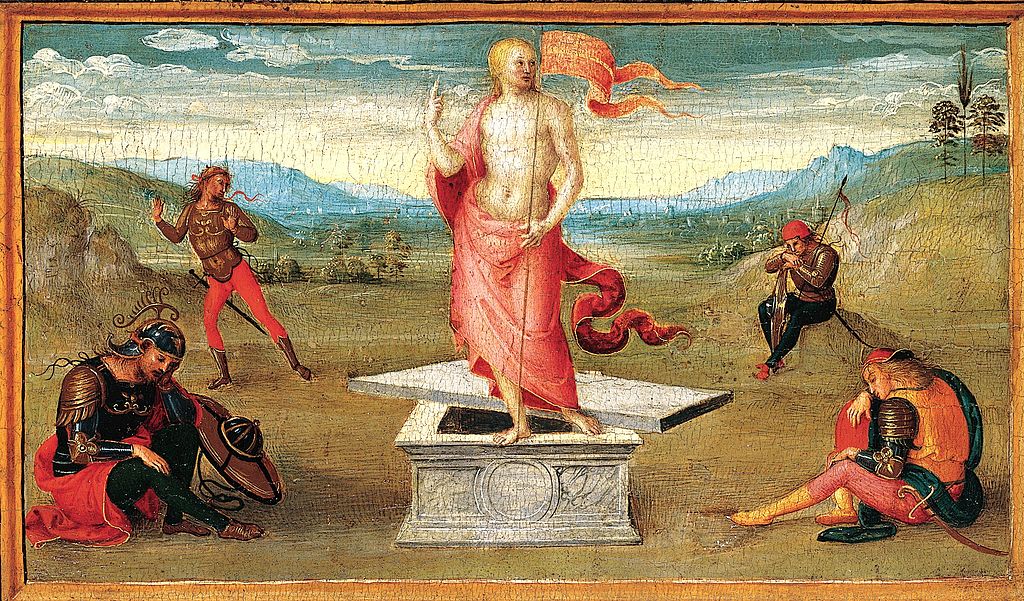
Before Eggs and Bunnies
I enjoyed a rousing Easter celebration on Sunday, as did many other Christians around the world. It was a great time of worship and a reminder not only of the promise of ultimate resurrection but also that God is still in the business of resurrecting the dead places in our lives.
I also came across a familiar refrain that shows up about this time every year — not at church but on social media. “It’s a pagan holiday.”
This kind of claim gets a lot of airtime at Christmas and Easter, both among skeptics and among purists in the faith who are alarmed at any hint of non-Christian influences.
I’ll save comments about Christmas for later, but the arguments about Easter generally look in two directions: toward Sumerian mythology dating about 2000 years before Jesus (and related death-rebirth stories), and toward equinox and fertility celebrations related to Eostre, Germanic goddess of Spring.
In each case the argument goes something like this: the Easter celebration of resurrection is a pagan holiday adapted from earlier mythology and, therefore, clearly derivative and invented. In other words, early Christians borrowed from other religions and made it up.
The problem with these arguments is that they would require us to believe either that early Jerusalem-centered Christians were even aware of ancient Mesopotamian mythology across many centuries and distances; or that they were highly receptive (very anachronistically) to distant rites filtered through Greek and Roman culture during an era when Rome was cultural enemy number one. On both counts, this is a hard sell.
It is quite clear that early Christians tied resurrection celebrations to the customs and calendar of the Jewish Passover experience. The biblical account clearly describes Jesus’ crucifixion and resurrection as coinciding with the Passover, and this connection continued in the writings and practices of the early church — long before other influences can be detected.
I think most historians can agree that some of the customs surrounding Easter, including its name (in Western Christianity), are derived from pagan practices and terms. But this was well over a century after Christians had been celebrating the resurrection annually as a fulfillment of Passover. The influence of non-Christians rites came relatively late.
For anyone looking for a real connection between the Resurrection of Jesus and the birth-death-rebirth mythology of other cultures, I’d suggest an entirely different approach — that God has embedded in every culture certain significant pointers to his salvation plan.
Missionary Don Richardson noticed this phenomenon of ‘redemptive analogies’ when he served in Irian Jaya among tribes that exchanged representative children to make peace with each other. (His book Peace Child tells this fascinating story.) God seems to have prepared the way for understanding the gospel by planting seeds of it in every culture.
I know some Christians who are bothered by eggs, bunnies, and the name ‘Easter.’ If the word ‘Easter’ concerns you because of its pagan origins, by all means call the holiday Resurrection Sunday (my preference, although we could argue that every day for a Christian is Resurrection Day) or Pascha (its name in the Orthodox church).
Of course, if someone wanted to be really consistent, he or she might also want to stop calling our days of the week by their current names, since they all derive from pagan gods — like Woden’s Day (Wednesday), Thor’s Day (Thursday), Saturn’s Day (Saturday), and so on. But if friends and colleagues don’t buy in, they might miss an appointment or two out of confusion.
And if eggs and bunnies concern you, by all means, leave them out. They are not the essence of this holiday, though they do tie in to some of Easter’s themes.
Meanwhile, I hope you didn’t get distracted this year with peripheral arguments. The fact is that early Christians, many of whom were eye-witnesses to the Resurrection event, began celebrating it every year along with Passover without any apparent reference to any foreign mythology. They did so because the Resurrection was, is, and always will be worth celebrating.


